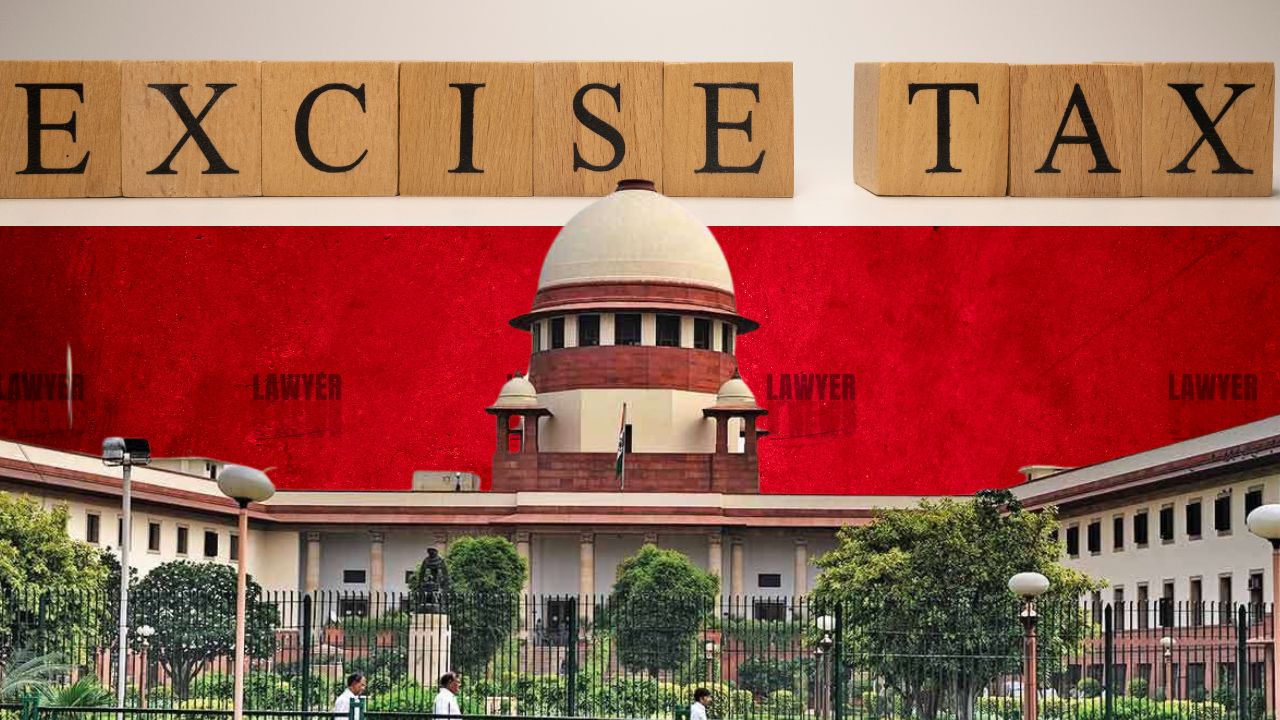-
by Admin
15 February 2026 5:35 AM



Supreme Court of India quashed the excise duty demands raised on Bharat Petroleum Corporation Ltd. (BPCL) under the Central Excise Act, 1944. The Court ruled that sales of petroleum products between Oil Marketing Companies (OMCs) under a Memorandum of Understanding (MOU) did not satisfy the requirement under Section 4(1)(a) that price be the sole consideration for the sale. It also held that the extended period of limitation under Section 11A was wrongly invoked in the absence of fraud, suppression, or wilful misstatement by BPCL.
The Court allowed BPCL’s appeal and set aside the demands and penalties. It also remanded related cases involving Indian Oil Corporation Ltd. (IOCL) and Hindustan Petroleum Corporation Ltd. (HPCL) for reconsideration in light of its findings.
BPCL, along with other OMCs (IOCL, HPCL, and IBP, later merged with IOCL), signed an MOU on March 31, 2002, at the behest of the Ministry of Petroleum and Natural Gas. The agreement aimed to ensure uninterrupted supply and distribution of petroleum products across India by fixing a common Import Parity Price (IPP) for transactions between OMCs. The IPP included the landed cost of the products, transportation costs, and terminal charges.
The dispute arose when the Revenue alleged that the IPP was not the "transaction value" as defined under Section 4(1)(a) of the Central Excise Act because it was not the sole consideration for the sale. Show-cause notices were issued to BPCL and other OMCs, demanding differential duty based on the higher prices at which OMCs sold products to their own dealers. The extended period of limitation under Section 11A was invoked on grounds of suppression of the MOU.
The Tribunal upheld the demands in BPCL's case, while in related cases, it ruled in favor of IOCL and HPCL. The Supreme Court consolidated the appeals and addressed the legal issues comprehensively.
Price Was Not the Sole Consideration for Sale
The Supreme Court carefully examined the terms of the MOU and concluded that the price was not the sole consideration for the sale of petroleum products between OMCs. The purpose of the MOU was not commercial profit but to ensure smooth supply and avoid disruptions.
Citing Recital (ii) of the MOU, the Court observed:
"The OMCs were desirous to avail of product sharing/assistance from each other in order to ensure smooth supply and distribution of petroleum products and to avoid any kind of disruption of supply all over India."
The Court further noted that the sales under the MOU were dictated by the Industry Logistics Plan (ILP), a supply and distribution framework jointly drawn by the OMCs to meet national demand. The IPP was thus part of a mutual arrangement for operational efficiency, not a pure sale at arm’s length.
"The real consideration for the MOU was to ensure uninterrupted supply to all OMCs at various locations in India. The MOU incorporates mutual arrangements for the smooth functioning of the petroleum sector and is not a purely commercial transaction. The price fixed under the MOU was therefore not the sole consideration for the sale."
Since the condition under Section 4(1)(a) was not fulfilled, the valuation had to be determined under Section 4(1)(b), which applies when price is not the sole consideration.
Extended Limitation Period Under Section 11A
The Court found that the extended limitation period under Section 11A could not be invoked, as the Department was already aware of the MOU’s existence and purpose.
It noted that the Board Circular dated February 14, 2007, explicitly acknowledged the MOU and referenced previous Tribunal decisions upholding the IPP as the transaction value. The Revenue’s claim of suppression of facts was thus unsustainable.
"The Department was aware of the MOU through prior Tribunal decisions and circulars. The allegation of suppression is baseless, as no fraud, collusion, or wilful misstatement was proven. Invocation of the extended limitation period under Section 11A is wholly unjustified."
The Court also criticized the Commissioner’s order for failing to provide detailed reasons for invoking the extended limitation period.
Penalty Under Section 11AC
The Supreme Court struck down the penalties imposed under Section 11AC, which requires proof of fraud, collusion, or wilful misstatement to evade duty. The Court found no evidence of such intent in BPCL’s actions.
"In the absence of any allegation or proof of fraud, collusion, or wilful suppression, penalties under Section 11AC are unsustainable. The MOU was a public document known to the Department, and there was no intent to evade duty."
The Supreme Court allowed BPCL's appeal, quashing the entire demand and penalties on the ground that the extended limitation period was inapplicable. It remanded related appeals involving IOCL and HPCL to the Tribunal for fresh adjudication in light of its findings.
The demands against BPCL were quashed entirely. Related appeals involving IOCL and HPCL were remanded to the Tribunal for reconsideration.
This judgment provides clarity on the valuation of goods under Section 4 of the Central Excise Act, particularly in cases where price is not the sole consideration for sale. It emphasizes the importance of understanding the underlying purpose of agreements like the MOU, which serve operational or public interest goals rather than purely commercial objectives.
By rejecting the invocation of the extended limitation period and quashing penalties, the Court reinforced the principle that suppression or fraud cannot be presumed without clear evidence. This judgment will have significant implications for public sector undertakings and other entities engaged in similar arrangements mandated by government policy.
Date of decision : January 20, 2025
